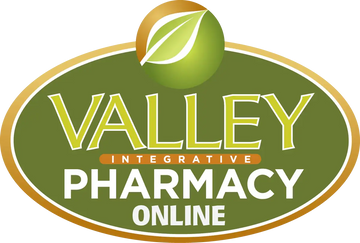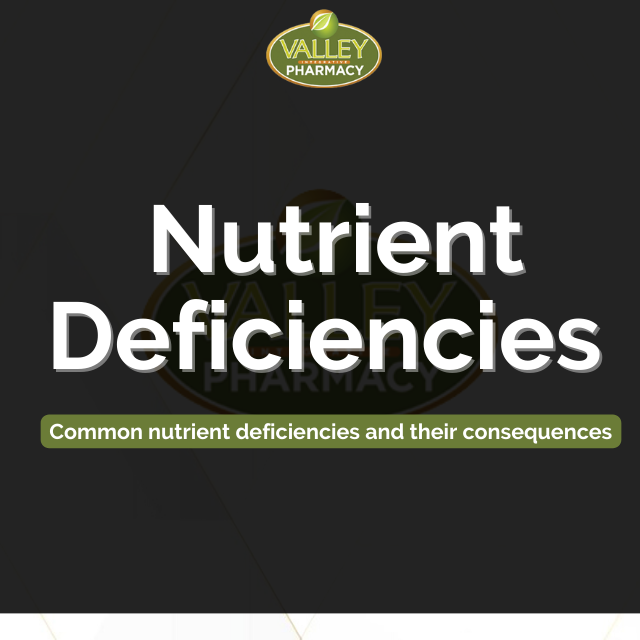In the fast-paced modern landscape, the significance of proper nutrition often takes a backseat, resulting in prevalent nutrient deficiencies among the American population. Nutrients are the fundamental pillars of good health, and insufficiencies in essential vitamins and minerals can give rise to a multitude of health risks. This article provides a comprehensive examination of the five most common nutrient deficiencies in America, supported by robust statistical data, and delves into the potential health repercussions stemming from these deficiencies.
Recent studies reveal that a considerable proportion of Americans fail to meet their nutritional requirements through dietary intake alone, prompting a pressing need for heightened awareness and corrective measures. The consequences of nutrient deficiencies can significantly impact physical, mental, and emotional well-being, make it especially important to understand your micronutrient status.
Common Nutrient Deficiency #1: Vitamin D

Vitamin D, known as the "sunshine vitamin," assumes a pivotal role in maintaining
robust bone health, bolstering the immune system, and promoting overall well-being. While the human body can synthesize vitamin D through exposure to sunlight, dietary sources such as fatty fish, fortified dairy products, and supplements play a crucial role in fulfilling daily requirements.
Statistics underscore that vitamin D deficiency afflicts approximately 41.6% of American adults, with certain subgroups exhibiting higher vulnerability due to limited sun exposure and sedentary indoor lifestyles.
Health Issues and Symptoms: Vitamin D deficiency precipitates adverse health implications, including osteoporosis, characterized by diminished bone density and increased susceptibility to fractures. Individuals afflicted by this deficiency commonly experience muscle weakness, fatigue, and heightened susceptibility to infections. Emerging research also establishes links between low vitamin D levels and elevated risks of chronic conditions such as cardiovascular diseases, diabetes, and select malignancies.
View our selection of vitamin D supplements here
Common Nutrient Deficiency #2: Iron
Iron stands as a critical mineral, vital for the production of hemoglobin responsible for oxygen transportation within red blood cells. It additionally supports cognitive function and fortifies the immune system. Dietary iron sources encompass red meat, poultry, fish, legumes, and fortified cereals.

Statistics evince that iron deficiency impacts approximately 9% of the U.S. populace, with specific groups such as pregnant women, young children, and vegetarians/vegans being more susceptible due to elevated iron demands or restricted dietary sources.
Health Issues and Symptoms: Iron deficiency engenders anemia, characterized by decreased red blood cell count and inadequate hemoglobin levels. Anemic individuals often manifest fatigue, weakness, dizziness, and difficulties with concentration. Children experiencing iron deficiency may encounter hindrances in cognitive development and learning. If left unaddressed, severe iron deficiency anemia can impede the immune system's efficacy and undermine the body's ability to combat infections effectively.
View our selection of iron supplements here
Common Nutrient Deficiency #3: Vitamin B12
Vitamin B12 plays a pivotal role in nerve function, DNA synthesis, and red blood cell formation. Animal-derived foods, such as meat, fish, eggs, and dairy products, serve as primary sources of vitamin B12, making vegans and vegetarians particularly vulnerable to its deficiency.

Statistics estimate that approximately 3.2% of Americans experience vitamin B12 deficiency, although this percentage may be higher in subgroups adhering to dietary restrictions.
Health Issues and Symptoms: Vitamin B12 deficiency gives rise to diverse health ramifications, including anemia, weakness, and fatigue. Neurological complications such as peripheral neuropathy, manifesting as numbness or tingling in the extremities, may ensue. Impaired coordination, memory problems, and difficulty walking may also emerge. Untreated deficiency can lead to irreversible nerve damage and cognitive impairment.
View our selection of vitamin B12 supplements here
Common Nutrient Deficiency #4: Magnesium
Magnesium, an essential mineral, participates in over 300 biochemical reactions, including energy production, muscle function, and nerve transmission. Nuts, seeds, whole grains, leafy greens, and legumes are among the dietary sources of magnesium.

Statistics indicate that magnesium deficiency affects approximately 50% of the U.S. population, largely attributable to modern dietary patterns dominated by nutrient-poor selections and soil depletion.
Health Issues and Symptoms: Magnesium deficiency instigates an array of health challenges, encompassing muscle cramps, weakness, and fatigue. Sleep quality, mood regulation, and stress management may also be adversely impacted. Over the long term, deficiency may escalate the risk of chronic conditions health conditions.
View our selection of magnesium supplements here
Common Nutrient Deficiency #5: Vitamin C
Vitamin C, an indispensable antioxidant, plays a pivotal role in immune support, collagen synthesis, and enhanced iron absorption from plant-based sources. Citrus fruits, strawberries, bell peppers, and broccoli are prominent dietary sources of vitamin C.

Statistics reveal that approximately 7.1% of Americans suffer from vitamin C deficiency, largely attributable to sub optimal dietary habits with limited consumption of fruits and vegetables.
Health Issues and Symptoms: Vitamin C deficiency culminates in scurvy, characterized by fatigue, swollen and bleeding gums, joint pain, and skin lesions. The compromised immune system renders the body vulnerable to infections, impeding wound healing
View our selection of vitamin C supplements here
Considering going vegan?
As more people embrace plant-based diets for ethical, environmental, or health reasons, it's crucial to ensure they're obtaining all the necessary nutrients for optimal well-being. While plant-based diets offer a wealth of benefits for many, there are a few nutrients that may be harder to come by without animal-based sources.Below we will discuss some of the key nutrients that may be lacking in a vegan diet including taurine, creatine, and bioavailable omega-3 fatty acids.
Taurine: A Missing Piece in Vegan Diets
Taurine, an amino acid found in animal tissues, serves various functions in the body, from supporting heart health to aiding in digestion and immune system regulation. Unfortunately, taurine is not prevalent in plant-based foods. While the body can synthesize taurine, vegan diets might not provide sufficient amounts for optimal health. Taurine is crucial for maintaining healthy eyes, heart, and neurological function. Its antioxidant properties also contribute to cellular protection, a factor in the quest for longevity. Recent research suggests that taurine deficiency may be a key contributor to accelerated aging and health decline.
View our selection of taurine supplements here
Creatine: Fueling Muscle and Cognitive Vitality
Creatine, famously known for its role in muscle performance, is another nutrient primarily found in animal sources. It supports ATP regeneration, providing energy for high-intensity activities and promoting muscle strength and endurance. Beyond its influence on physical performance, creatine also has potential cognitive benefits. Some studies suggest that creatine supplementation may enhance memory and cognitive function. As we age, maintaining both muscular and cognitive strength is pivotal for promoting longevity.
View our selection of creatine supplements here
Omega-3 Fatty Acids: Navigating the Plant-Based Dilemma
Omega-3 fatty acids are celebrated for their heart and brain health benefits, but the challenge lies in obtaining sufficient bioavailable forms, particularly DHA (docosahexaenoic acid), from plant-based sources. While some plant-based foods offer ALA (alpha-linolenic acid), only a small percentage (around 5-10%) of ALA is converted into DHA in the human body. DHA is critical for brain function, supporting cognitive health and aiding in the prevention of neurodegenerative disorders.
View our selection of omega-3 supplements here
The Importance of DHA for Brain Health and Aging
DHA, a major component of brain tissue, contributes to the structure and function of neurons. It plays a pivotal role in neural development during infancy and continues to support cognitive function throughout life. Research suggests that DHA deficiency is associated with cognitive decline and an increased risk of neurodegenerative diseases. As we age, maintaining optimal brain health becomes paramount for longevity and overall well-being. While plant-based sources of omega-3s are undoubtedly beneficial, incorporating algae-based DHA supplements can bridge the gap and provide the essential brain-nourishing benefits that are naturally abundant in fish.
View our selection of DHA supplements here
Main Takeaway
Recognizing the urgency of proper nutrition, addressing nutrient deficiencies assumes paramount importance in safeguarding public health. An informed commitment to a well-balanced diet, fortified with essential vitamins and minerals, is crucial in averting these deficiencies. Additionally, high-quality multivitamins can serve as invaluable supplements in cases where dietary intake falls short of fulfilling nutrient needs.
Elevating awareness regarding individual nutrient status is vital for personalized health management. At Valley Integrative Pharmacy, we proudly offer a comprehensive micronutrient test, empowering individuals to understand their micronutrient status and make informed choices for their nutritional well-being.
By proactively addressing nutrient deficiencies, we take charge of our health and embrace a more vibrant, enduring life. Nurturing our bodies with optimal nutrition is an investment in our most valuable asset – our health – securing a prosperous future imbued with vitality and well-being.
Looking for advice on what supplements are right for you?

Schedule a FREE discovery call with our Naturopath Zach Trapanese to discuss your unique health goals and what supplements or functional lab tests may be right for you.

